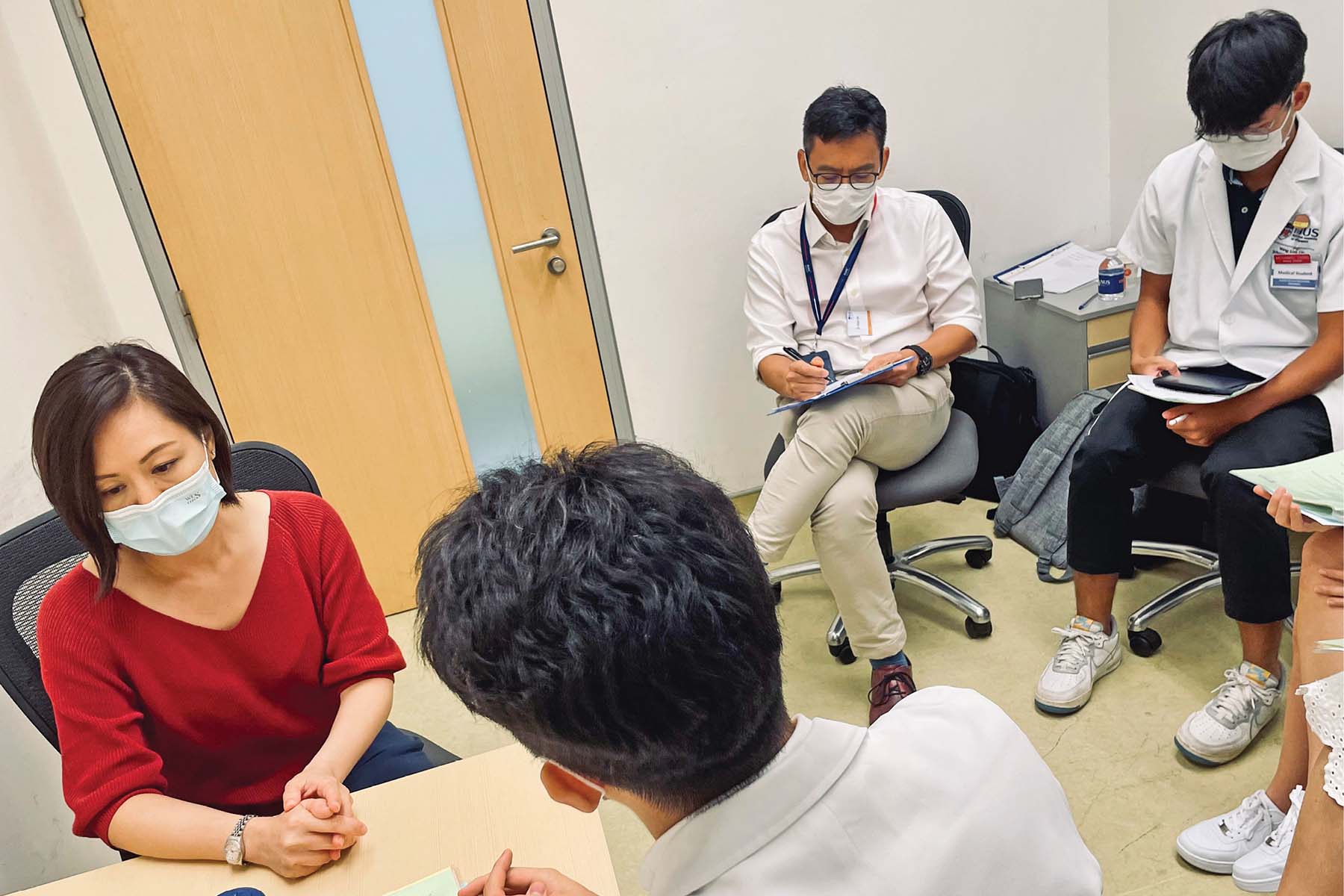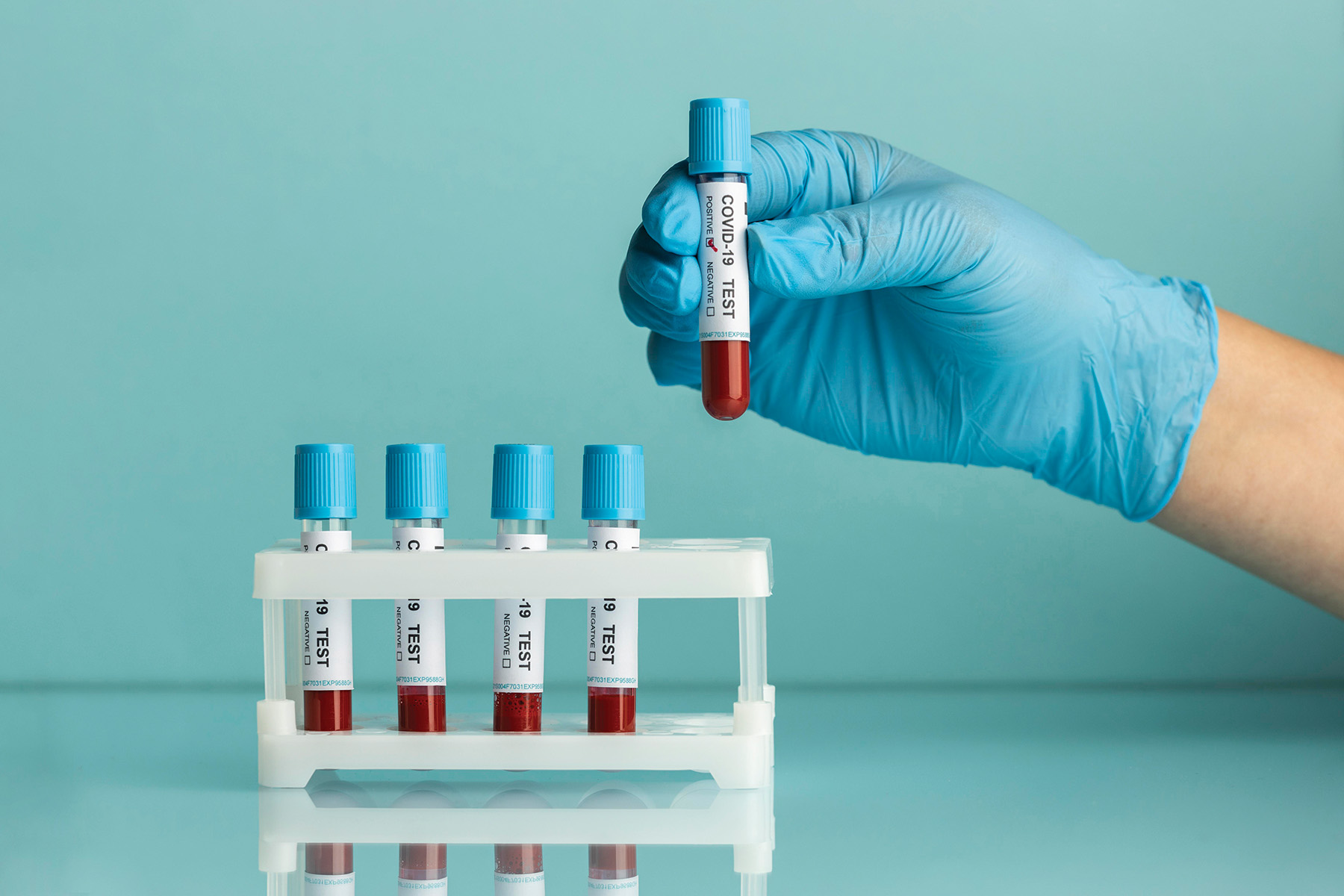
Issue 43 / August 2022
COVID-19 Special
What Comes Next in the COVID-19 Pandemic?

By Dale Fisher, Sameera Suri, Gail Carson, on behalf of the GOARN collaborators
The COVID-19 pandemic is not over, but with collaboration and solidarity, we can transition to a manageable endemic disease state sooner, and better mitigate the most severe health and socioeconomic impacts.
n this third year of pandemic response, society needs to focus on improved implementation of effective interventions to end the acute phase. Governments and health authorities have the necessary knowledge and tools in hand, in the form of vaccines, diagnostics, and therapeutics, but equitable availability of these tools remains a challenge globally.
Today’s decisions and efforts will continue to affect the pandemic’s overall health, social, and economic toll. According to Our World in Data, 700,000 deaths were recorded as COVID-19 related between January and March, 2022, and only 14.5% of people in low-income countries have received at least one dose of a COVID-19 vaccine. SARS-CoV-2 variants continue to emerge as trust between governments and their constituents is tested, rendering sustained implementation of broad community-based interventions challenging. In many communities, crucial non-COVID-19 health services are yet to be fully restored to pre-pandemic levels.
The emergency phase of the COVID-19 pandemic will eventually end, but when will be determined by collective actions. Likewise, what is learnt and how society grows from this experience can still be influenced. The next pandemic need not catch the world so unprepared.
The extraordinary nature of this pandemic calls for extraordinary analyses at global, national, and organisational levels. Society must reflect on what has been learnt about ourselves, our communities, our governance, and our preparedness and response systems. SARS-CoV-2 has caused too much harm in terms of death, morbidity, careers, relationships, finances, plans, and dreams for us to fall short of rigorous and independent after-action appraisal of the pandemic response. Communities have a right to understand why and how the pandemic response unfolded the way it did and to be assured improvements will be made. National and global leaders must use the knowledge gained from this pandemic and its reviews to ensure more robust multidisciplinary governance, and equitable health and public health systems going forward.
Communities have a right to understand why and how the pandemic response unfolded the way it did and to be assured improvements will be made. National and global leaders must use the knowledge gained from this pandemic and its reviews to ensure more robust multidisciplinary governance, and equitable health and public health systems going forward.
A fresh approach to global health security is needed as well as the development of better measures of preparedness, with a greater emphasis on collaboration and equity. We call for improved funding to enhance both preparedness efforts and alert, and rapid response capabilities at both national and international levels. Sustained financing for institutions is necessary to train future leaders and build a global response workforce that embraces multidisciplinary scientific and public health networks as core. Immediate operational response needs at the country and local levels must be supported with sufficient resources.
Since its inception in 2000, the Global Outbreak Alert and Response Network (GOARN) has grown to encompass 270 partners and responded to almost every major national and international outbreak through deployment of more than 3,500 experts to over 100 countries. Drawing from this experience, the Steering Committee of GOARN offers the following recommendations outlining important next steps at this stage of the COVID-19 pandemic that would enable communities to better mitigate the health and societal impacts of the next pandemic.
700,000
deaths were
recorded as
COVID-19 related
between January
and March, 2022,
and only
14.5%
of people in low-
income countries
have received at
least one dose of a
COVID-19 vaccine
The emergence and re-emergence of high consequence diseases highlight the need for better global coordination; national level preparedness; closer involvement of communities in prevention, preparedness, alert and response; directed and interdisciplinary training of stakeholders; and integration of applied research for the strongest outbreak response.
Total death counts resulting from the pandemic exceed the mortality registered from COVID-19 alone. Excess deaths are attributable to fear to seek medical care, postponed treatments and overwhelmed systems that could no longer provide essential health services. The early post pandemic phase will realise a need to manage excess physical and mental health consequences, whether immediately COVID-19 related or indirectly related, including interrupted programmes that identify chronic diseases, provide vaccines, and prevent infectious diseases and malnutrition.
In addition, the content of future independent reflective after-action reviews will help inform global policy discussions regarding future governance, systems improvement, and financing to develop healthy communities that are adequately prepared to respond to future health emergencies.
In this context, we make the following observations and recommendations.
|
01 |
Decisions made today influence the impacts of this pandemic. Communities and their leaders must endure, applying the lessons from the last two years. The multidisciplinary technical and operational pillars of outbreak response must remain coordinated and enabled to continue their function, underpinned by strategic community engagement via two-way communication to ensure concerns are being addressed and trust is optimised. |
|
02 |
Case numbers are not a helpful measure now and can be replaced by sentinel surveillance systems to understand trends. Further refinement of metrics that matter is needed, including excess mortality, severe disease, overall physical health issues, health and social care capacity, absenteeism of essential workers, school continuity, mental health consequences and the social and economic impacts that affect people. |
|
03 |
Non COVID-19 health and social services must be restored as quickly as possible to ensure people are not unnecessarily suffering from other illnesses including mental health and maintain preventative efforts via cancer screening, vaccinations, etc. Priority should be given to health and social services for women and children that have been disproportionally affected by the public health and social measures implemented to reduce COVID-19 transmission. |
|
04 |
Enacted by governments across the globe, a proactive and collaborative approach to scaling production and sharing the response tools (including vaccines, diagnostics and therapeutics) available now can expedite the end of the acute phase of the pandemic. |
|
05 |
Support vaccine equity through the evolving network of global vaccine manufacturing and technology hubs with patent suspension and active support for manufacturing (licensing, know-how, removal of export barriers). |
|
06 |
The vaccine response needs concurrent social and public health measures to slow transmission when health and social systems are being overwhelmed. Border controls have deleterious effects and should not be relied upon to sustainably prevent spread of emerging SARS-CoV-2 variants. |
|
07 |
Science and decision-making need a refreshed alignment with governments countering deliberate misinformation through a strategic approach to risk communications and community engagement. Regulation can be introduced or reinforced as deemed appropriate. |
|
08 |
Thorough, evidence based and unbiased analyses of the impact of the pandemic should be planned. Longer term preparedness efforts as well as the response itself can be analysed by the many components to drive improvement in governance and health systems. |
|
09 |
Availability, accessibility, and affordability should be built in at the very early stage in any tools development and should be conditional for any international sponsorship. |
|
10 |
Vulnerabilities identified within various settings and systems mustn’t be forgotten and communities must push for longer term societal reform for high-risk individuals and contexts. |
|
11 |
Assessment tools of national epidemic and pandemic preparedness need review, moving away from static measures and checklists towards scenarios and exercises that can identify weaknesses, including coordination and tensions at leadership interfaces. |
|
12 |
Beyond the support to most socio-economically vulnerable and underprivileged populations and communities that need to be kept as a top priority by national and international organisations, it is critical to ensure that a COVID-19 response is community-based, with community needs and perspectives driving public health decision-making. |
|
13 |
Outbreak prevention, preparedness, alert, and response measures need greater recognition through the resourcing, stress testing and coordination among GOARN partners who are capable of assisting the development of a global health workforce to ensure adequacy of capacities including alert and rapid response, coordination through incident management systems, integrated data and analyses, communications and support to communities, and life-saving support to patients. |
|
14 |
These measures require a commensurate political and financial commitment to lead to healthier communities with broad-based improvement in health across infectious diseases as well as non-infectious conditions. |
|
GOARN is an international and highly agile network established 21 years ago, and partners are practised in working with governments and public health institutions. The network has the potential to considerably amplify outbreak preparedness, alert and response efforts through its partners and long-standing relationships to further strengthen the global safety net of a trained workforce and engage with the communities. |
|
Professor Dale Fisher is a professor at the Yong Loo Lin School of Medicine, National University of Singapore (NUS Medicine), and the chairman of GOARN. |
 |
The full text was first published on 11 April 2022 in The Lancet.




